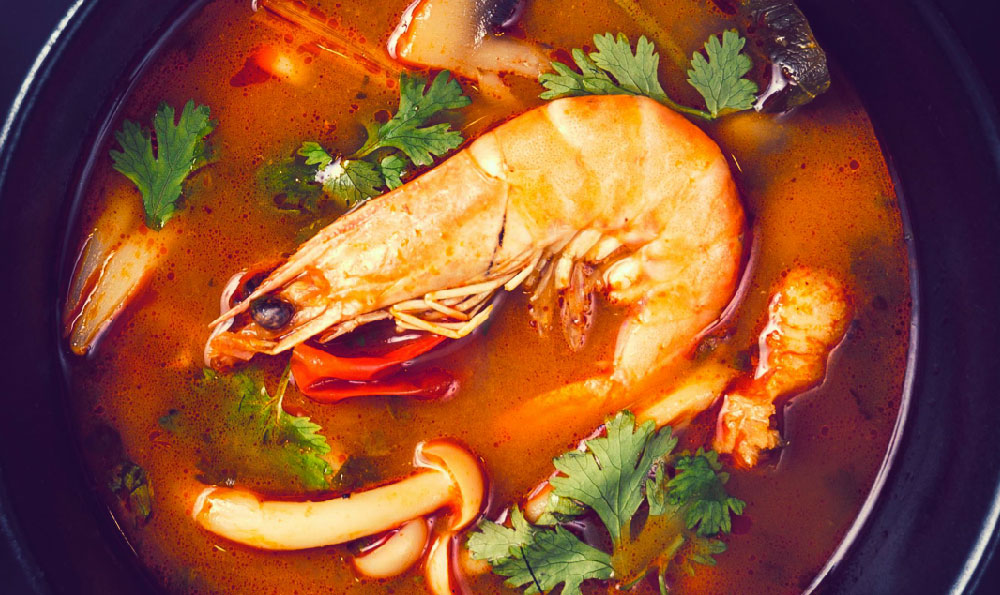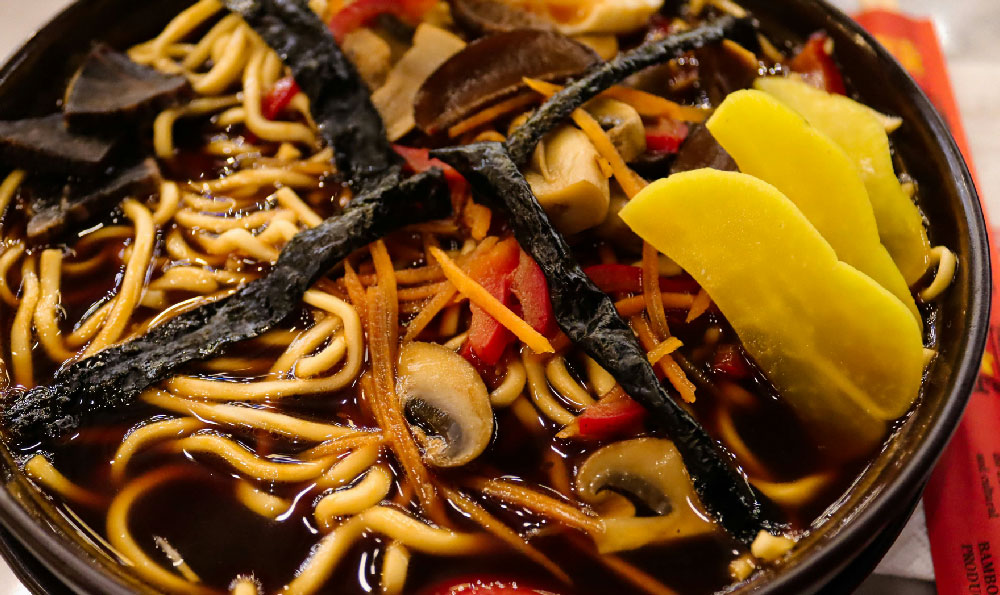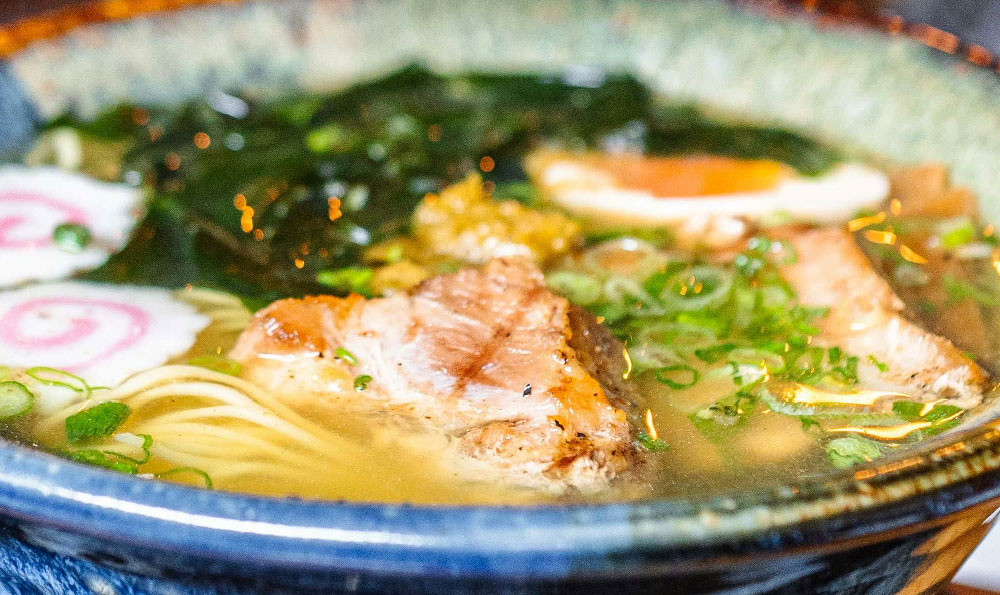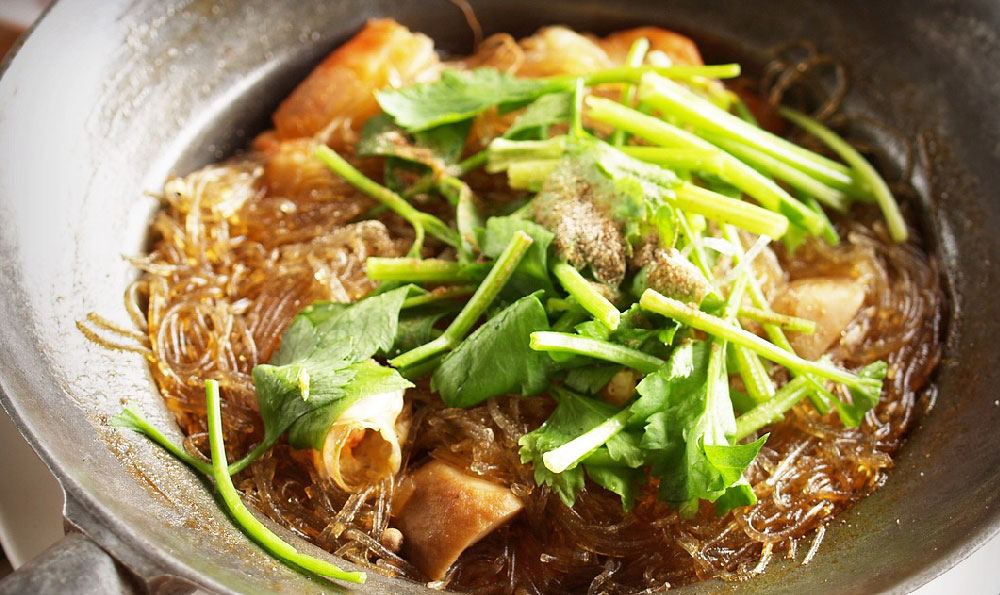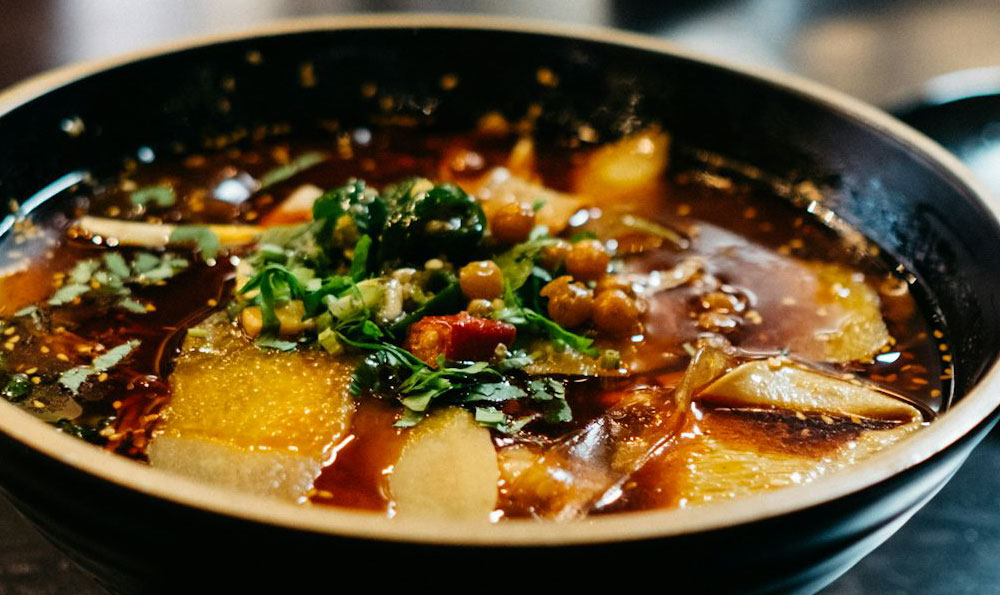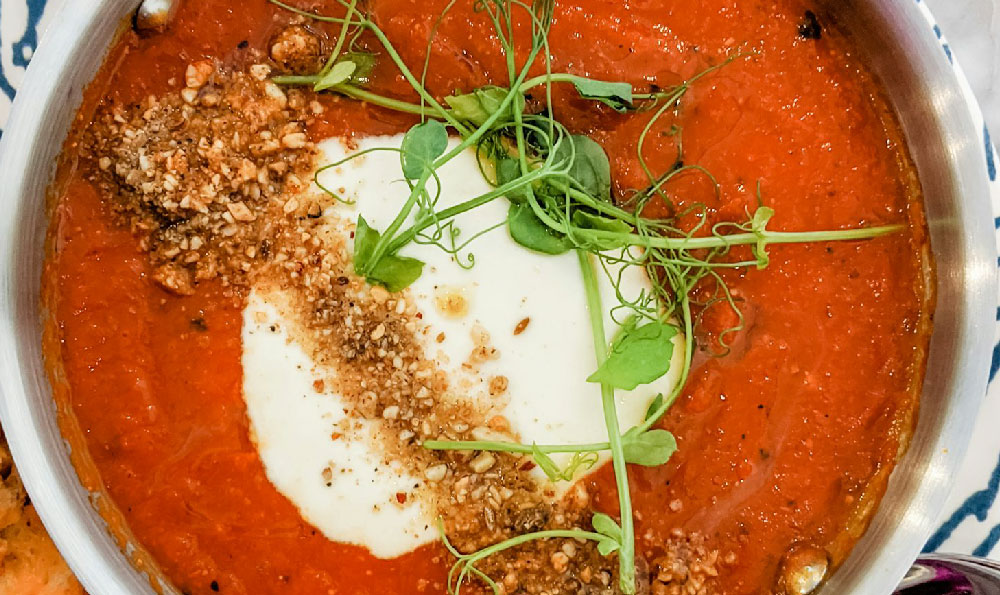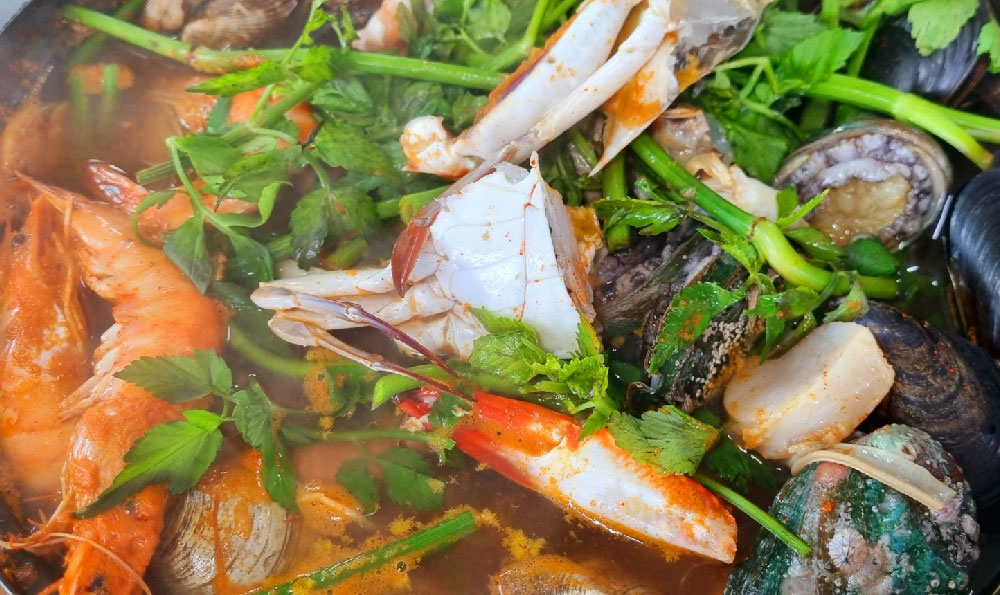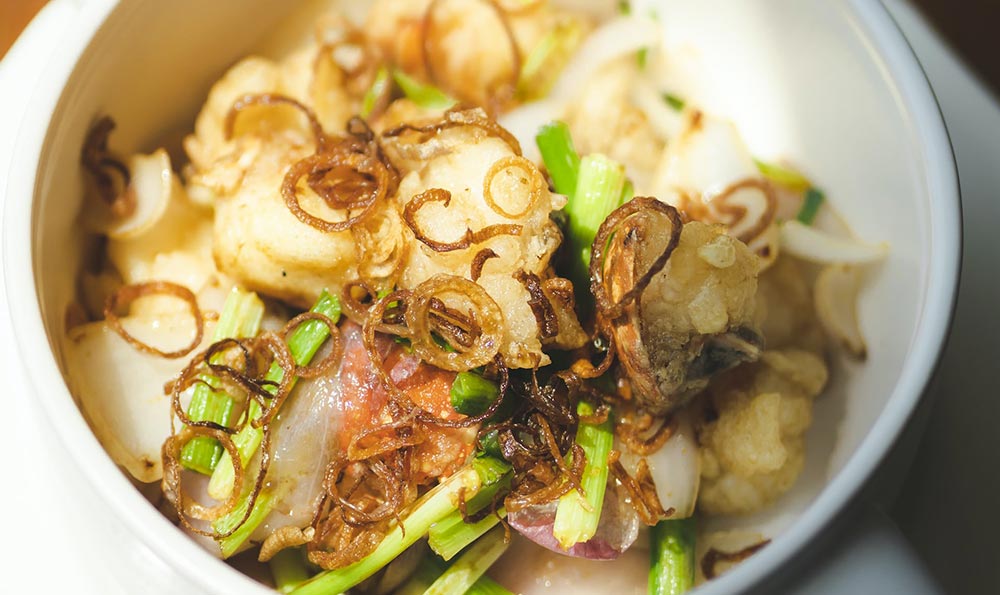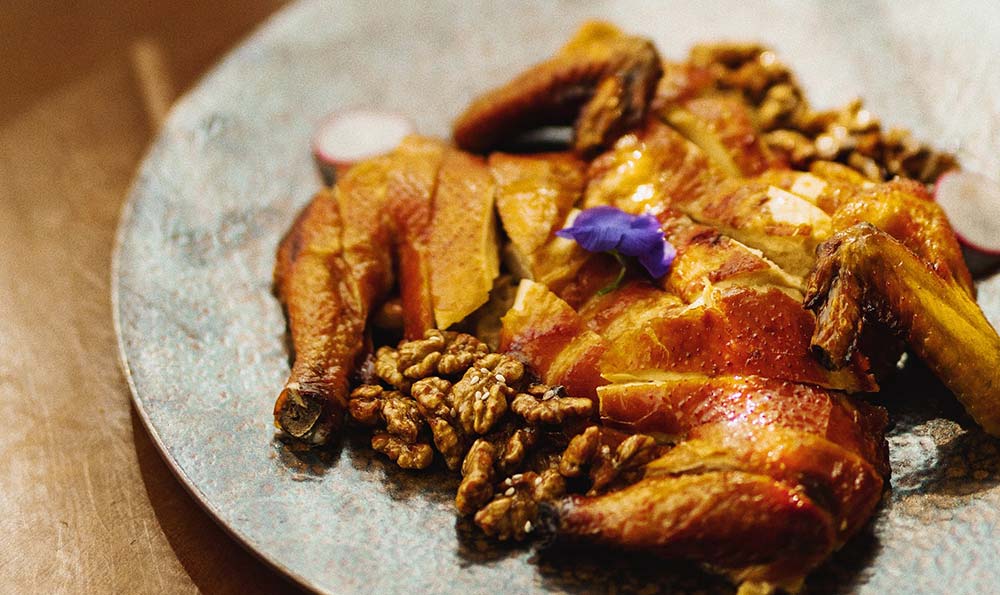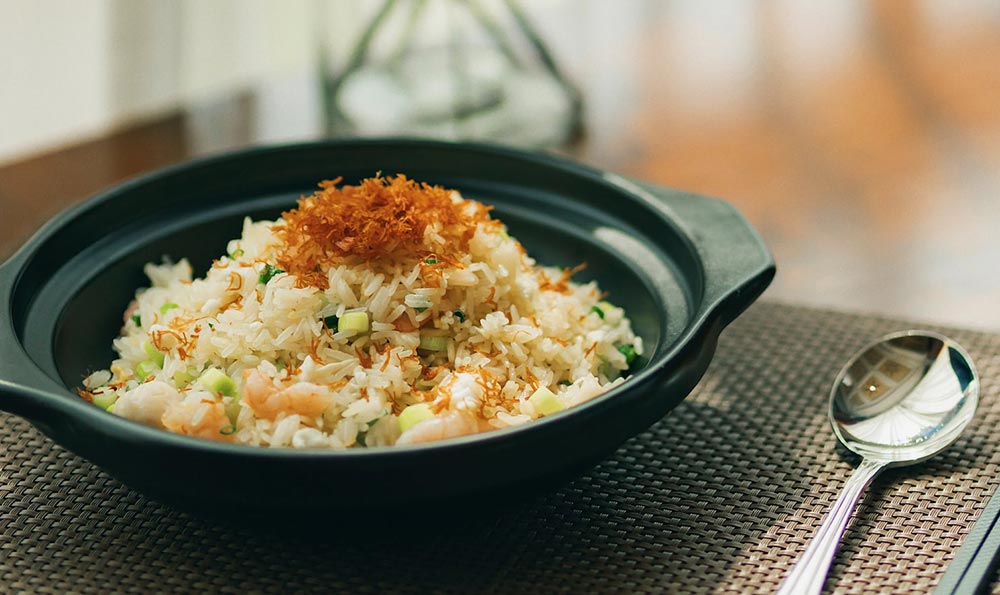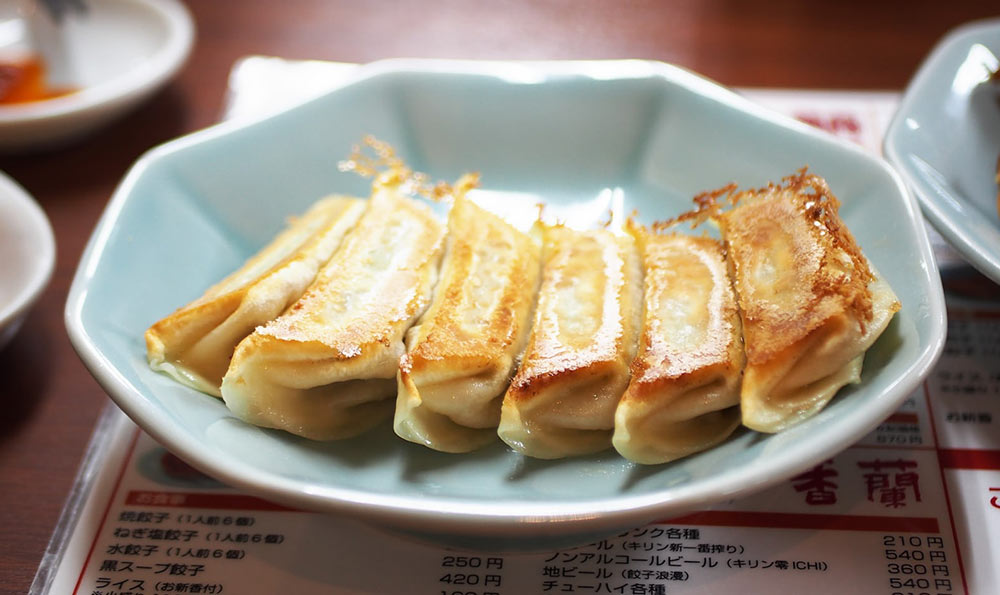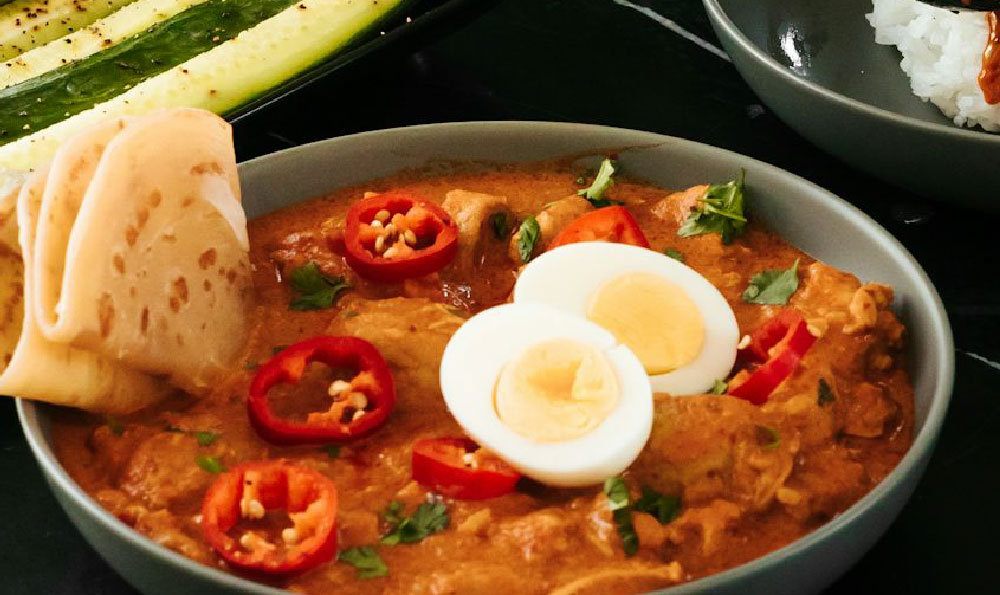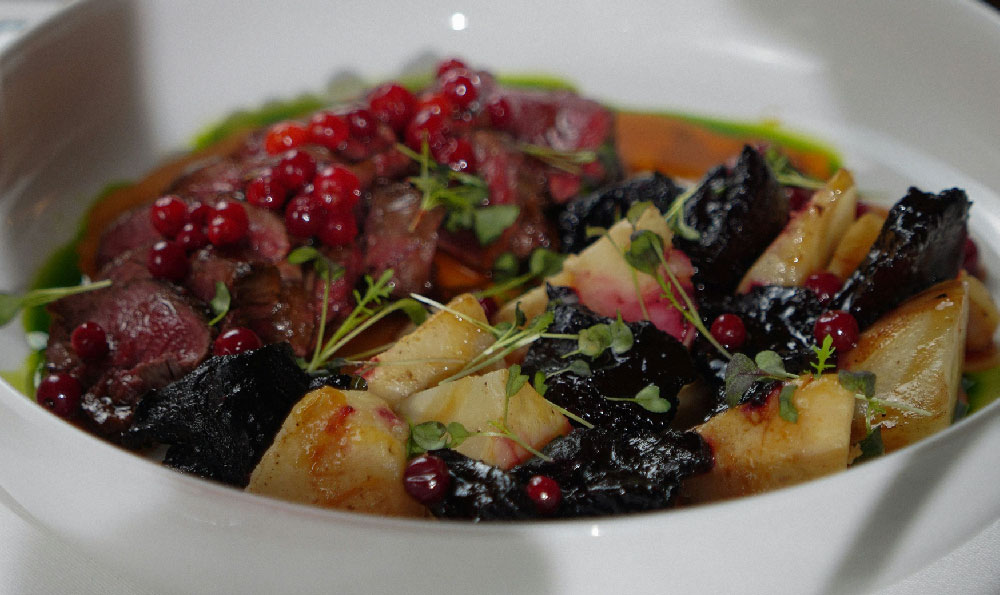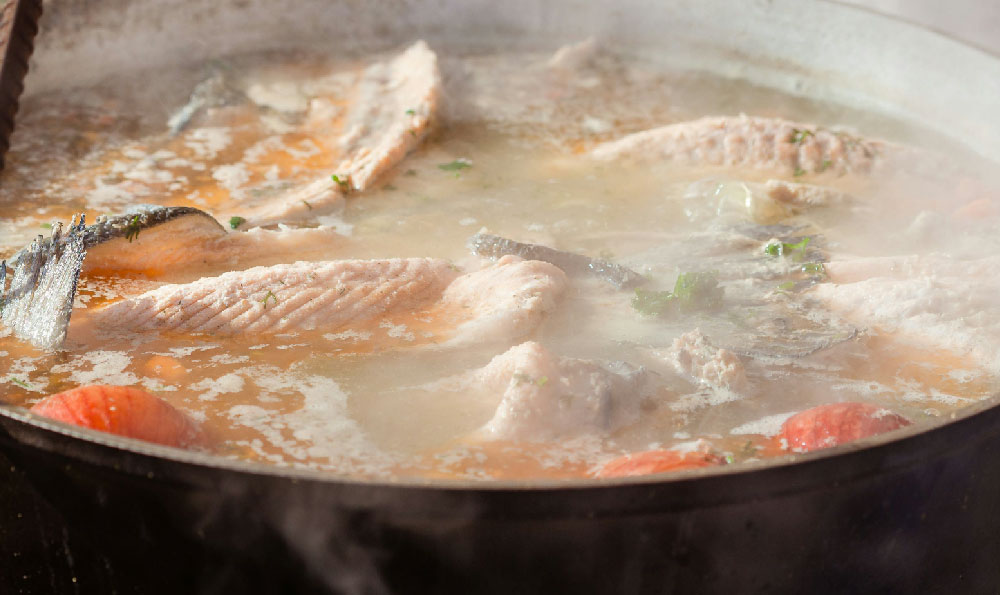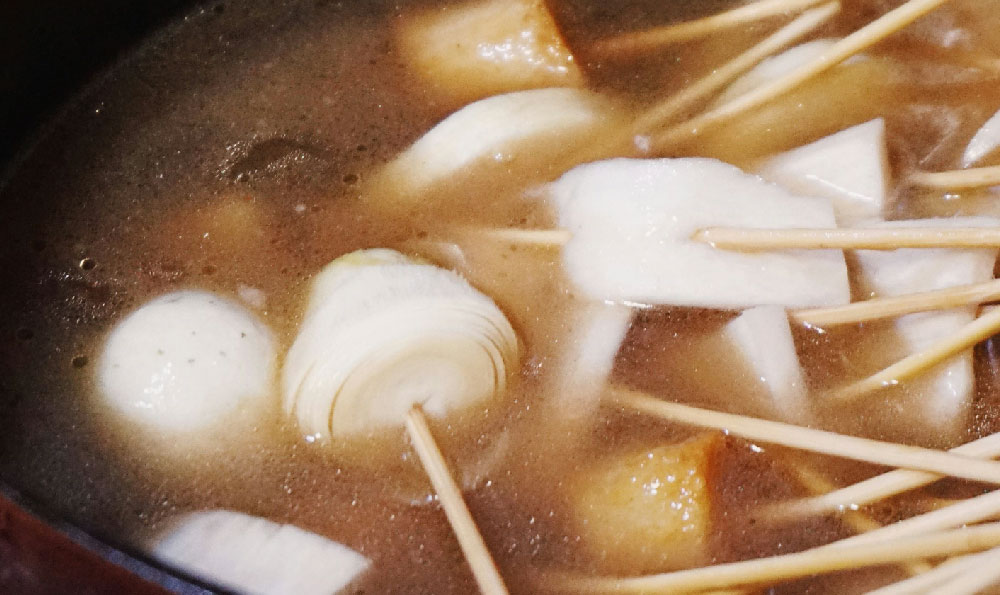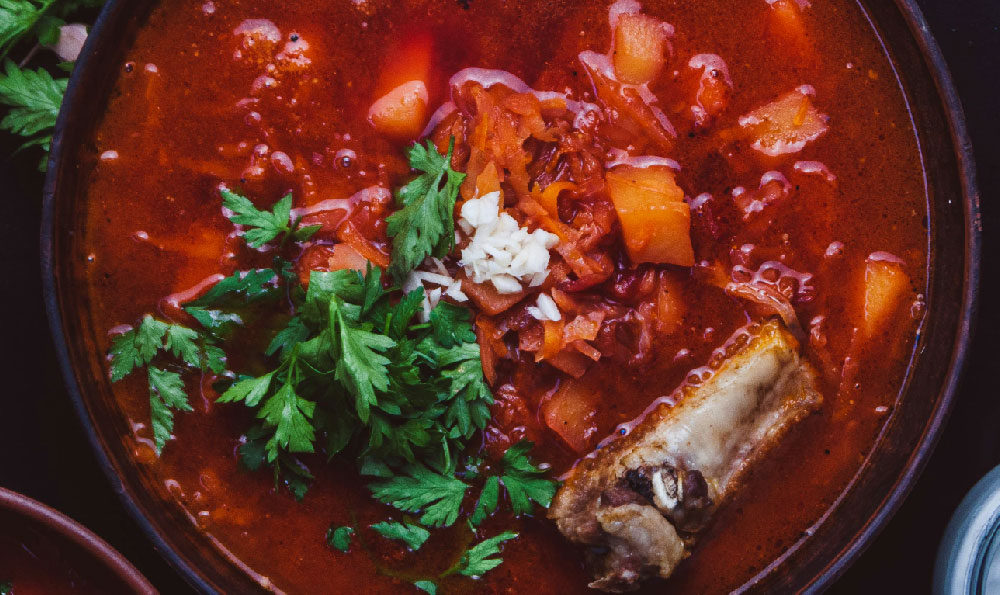麻辣烫,这道饮食文化的代表,不仅能在寒冷的冬日暖胃,更因其独特的香辣味道成为了许多人心中最爱的美食之一。究竟是什么让麻辣烫如此受欢迎呢?就让我们一起探究一番!

麻辣烫的起源
香辣的麻辣烫最早出现在四川。古代的四川,气候湿润,加上地理环境特殊,多山且多雨。这种特殊的气候条件孕育了丰富多样的辣椒品种,进而形成了四川人对辣味的独特偏好。由于四川人热爱辣味,他们探索出了一种通过烹饪方法将辣椒的辣味提炼出来,使得辣椒的特殊风味更加突显。于是,麻辣烫由此诞生,成为了四川人必不可少的美食之一。
麻辣烫的制作
麻辣烫的制作过程并不复杂,但要制作出美味的麻辣烫却需要一定的技巧。要选用新鲜的食材,比如豆腐、肉类、海鲜等,以保证烫出的食材口感鲜美。在烹饪过程中适量加入各种辣椒和香料,通过火爆的油锅将辣椒的辣味和香料的香气释放出来。根据个人口味添加适量的盐、酱油等调味料,使得麻辣烫的味道更加浓郁。
麻辣烫的营养价值
麻辣烫不仅美味可口,而且还富含多种营养物质。辣椒所含的辣椒素和维生素C可以提高人体的新陈代谢,增强免疫力。麻辣烫中的豆腐含有丰富的植物蛋白和钙,对于身体的发育和骨骼健康起到重要作用。麻辣烫还含有大量的蔬菜和海鲜,这些食材富含纤维和各种维生素,有助于促进消化和提供细胞所需的营养。
麻辣烫的文化魅力
作为一道传统的四川美食,麻辣烫早已超越了餐桌美食的范畴,成为了一种饮食文化的代表。不论是四川人还是外地人,只要提到麻辣烫,都会联想到四川的热情和豪爽。麻辣烫关于辣椒所蕴含的灵感和独特的制作方法,使得麻辣烫成为了四川文化中不可或缺的一部分。而麻辣烫也逐渐走出四川,成为了全国各地热爱美食的人们的首选。
麻辣烫:辣中带麻的美味
麻辣烫的魅力在于它独特的辣中带麻的味道。那种让人欲罢不能的麻辣感,是麻辣烫与其他美食无法比拟的独特之处。无论是寒冷的冬天还是炎热的夏天,麻辣烫都能给人带来一股温暖和满足的感觉。而这份满足感不仅来自于舌尖上的刺激,更源自于对美食的热爱和对生活的热情。
麻辣烫作为一道独具特色的美食,不仅因其香辣的味道而受到大家的喜爱,更反映了饮食文化的多样性和人们对美食的追求。不妨试一试,品味这道美食的独特魅力,让你的味蕾也感受一把四川的麻辣风味!
糖尿病患者可以吃麻辣烫吗麻辣烫么
糖尿病患者可以吃麻辣烫吗?麻辣烫是一种辣味浓郁的传统美食,深受广大食客的喜爱。对于糖尿病患者来说,饮食控制是非常重要的,他们需要特别关注每一餐的食物选择。对于糖尿病患者来说,是否可以食用麻辣烫呢?在本文中,我们将对这个问题进行探讨。
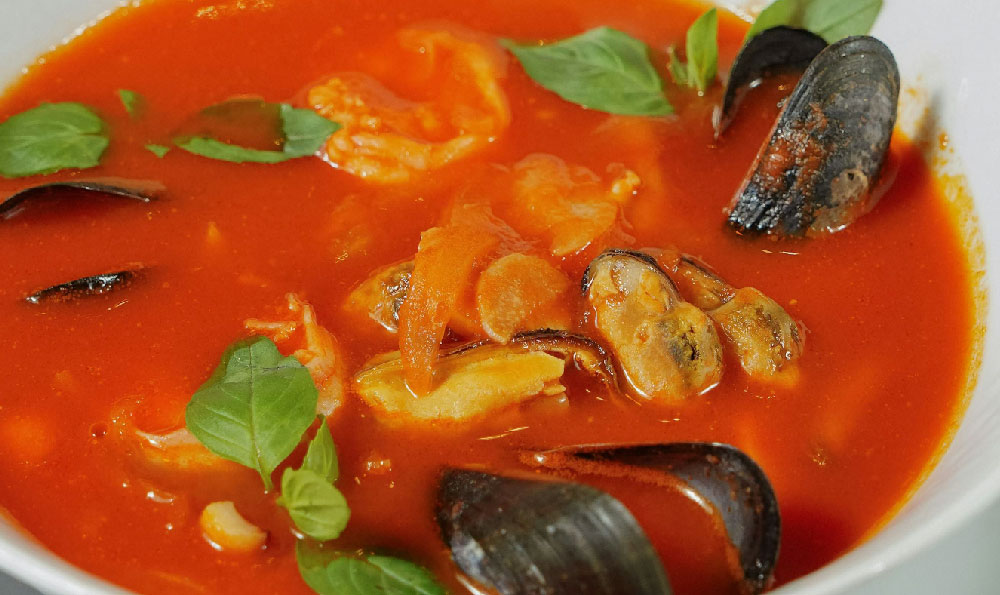
我们需要了解麻辣烫的特点和成分。麻辣烫是一种以辣椒和香辛料为主要调料的汤类食品,常见的配料有肉类、海鲜、蔬菜等。其辣椒和香辛料含有较高的热量,以及对血糖和胃肠道的刺激作用。糖尿病患者在选择食用麻辣烫时需要谨慎。
麻辣烫的热量相对较高,对于糖尿病患者来说可能会导致血糖的波动。研究表明,高热量的食物摄入与糖尿病的发病风险有关。对于糖尿病患者来说,保持适当的体重和控制热量摄入非常重要。对于麻辣烫这类高热量食物,糖尿病患者应该尽量减少摄入量或者选择低热量的替代品。
麻辣烫的调料中含有较多的盐和调味品,这对于糖尿病患者来说也是一个需要考虑的因素。高盐摄入会导致血压升高,增加心脑血管疾病的风险。而糖尿病患者本身就容易患上心脑血管疾病,因此对于盐的摄入量需要进行控制。调味品中的某些成分也可能对糖尿病患者的血糖控制产生影响。糖尿病患者在选择麻辣烫时应尽量减少盐和调味品的摄入。
糖尿病患者是否完全不能吃麻辣烫呢?答案是并不一定。对于糖尿病患者来说,关键在于摄入的量和选择的配料。如果能够合理控制食用麻辣烫的量,并且选择低热量、低盐的配料,那么糖尿病患者是可以适量享用麻辣烫的。
糖尿病患者还可以根据自身情况进行个性化的调整。可以选择不添加或少添加辣椒和香辛料,以减少对胃肠道的刺激。可以选择更多的蔬菜和少量的瘦肉作为主要配料,以增加纤维素和蛋白质的摄入量。这样不仅可以减少热量的摄入,还能提供更多的营养。
糖尿病患者可以吃麻辣烫,但需要注意选择和控制食用量。还可以根据个人情况进行合理的调整。如果无法确定自己的饮食是否合适,建议糖尿病患者咨询医生或专业营养师的意见。只有合理掌控饮食,才能保持血糖稳定,保护健康。让我们一起关注糖尿病患者的饮食健康,共同为他们的福祉努力!
我喜欢吃麻辣烫用英语怎么说
What is the English translation of "我喜欢吃麻辣烫"?

Introduction:
The popularity of Sichuan cuisine has spread across the globe, with one particular dish gaining immense popularity among both locals and foreigners - 麻辣烫, also known as spicy hot pot. Exploring the English translation of "我喜欢吃麻辣烫" allows us to delve into the culinary terminology and cultural significance associated with this beloved dish.
Definition of 麻辣烫:
麻辣烫, literally translated as "numbing spicy hot pot," is a Chinese dish originating from Sichuan cuisine. It consists of a flavorful and spicy broth, typically made from Sichuan peppercorns, chili peppers, and various herbs and spices. The ingredients are cooked in the hot pot, a communal cooking vessel, and diners can customize their own bowls by adding ingredients such as meat, vegetables, noodles, and tofu.
Classification of 麻辣烫:
麻辣烫 can be classified as a type of hot pot, a popular cooking style in Chinese cuisine. Hot pot refers to the communal pot of simmering broth placed at the center of the dining table, where diners cook their own ingredients. However, 麻辣烫 distinguishes itself with its unique flavors, characterized by the combination of numbing and spicy sensations.
English translation of "我喜欢吃麻辣烫":
The English translation of "我喜欢吃麻辣烫" can be rendered as "I enjoy eating spicy hot pot." This translation effectively conveys the individual's preference for consuming this particular dish. It maintains the simplicity and accuracy of the original phrase while incorporating English language conventions.
Comparison with other cuisines:
When comparing 麻辣烫 to other cuisines, it is essential to highlight the distinctive attributes that set it apart. While many cultures worldwide celebrate spicy foods, Sichuan cuisine, which 麻辣烫 is a part of, is renowned for its unique combination of flavors. The numbing effect of Sichuan peppercorns, paired with the heat of chili peppers, creates a complex taste profile that is unparalleled in other cuisines.
Example usage in a sentence:
To demonstrate the usage of the English translation, we can construct a sentence such as, "Whenever I crave something flavorful and spicy, I always indulge in a steaming bowl of spicy hot pot."
Conclusion:
Exploring the English translation of "我喜欢吃麻辣烫" sheds light on the cultural significance and culinary terminology associated with this beloved dish. By maintaining a precise, formal, and objective writing style, we have defined 麻辣烫, classified it within the realm of hot pot cuisine, provided an accurate English translation, and highlighted its unique attributes in comparison to other cuisines. The English translation "I enjoy eating spicy hot pot" effectively captures the essence of the original phrase, allowing individuals from different linguistic backgrounds to appreciate the love for this fiery Sichuan delicacy.

